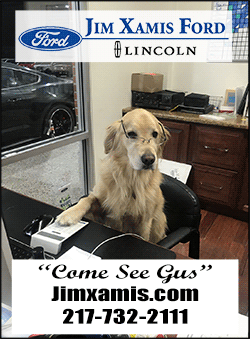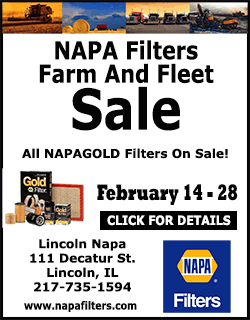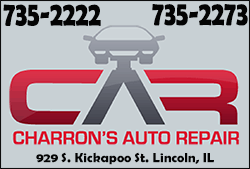Bottled water firms turn on the taps with filters,
flavors and fizz
 Send a link to a friend
Send a link to a friend
 [February 04, 2020] By
Silke Koltrowitz and Emma Thomasson [February 04, 2020] By
Silke Koltrowitz and Emma Thomasson
BERLIN/VEVEY, Switzerland (Reuters) - A
German firm backed by bottled water giant Danone plans to launch a
sparkling-water machine for the home early next year, its chief
executive told Reuters, squarely taking aim at PepsiCo's SodaStream.
Nestle, the bottled water market leader, is also considering a machine
for the home with filters, flavors and fizz that would be a smaller
version of its Refill+ dispensers being rolled out in cafeterias, hotels
and offices this year.
Concerns about plastic waste and the environmental impact of
transporting bottled water are prompting more people to drink straight
from the tap, which is in turn pushing water firms to come up with new
products to keep customers on board.
"Bottled water as we know it today, I don't think will exist in 30
years. You will see much more point-of-use solutions like ours," said
Moritz Waldstein, chief executive of Mitte, the Berlin-based company
backed by Danone.
"I am of the strong belief that it will be a fraction of the market size
that we have today," he told Reuters.

The global bottled water market was worth $135.6 billion in 2019,
according to market researcher Euromonitor International, and is
expected to grow to $170.9 billion by 2022, with demand expanding
fastest in Asia.
Like Nestle, Mitte is betting that concerns about plastic pollution and
contamination of public water supplies mean consumers will want
countertop devices at home that filter tap water, as well as adding fizz
and flavors like SodaStream.
In 2018, a Danone fund which invests in firms responding to growing
environmental awareness joined a $10.6 million funding round for Mitte,
which is developing a device to purify tap water and add minerals via
cartridges.
Danone, the world's third-largest bottled water seller with brands such
as Evian, Volvic and Badoit, had slightly lower water sales in its third
quarter. It is also looking to boost plastic recycling and encourage
alternatives - such as Mitte.
"We think there could be demand from sophisticated consumers who for
many reasons will prefer to make their mineral water at home," said
Danone Chief Executive Emmanuel Faber.
Mitte said it received extra funding from its shareholders in an
investment round in December, including the Danone fund, and it might
raise more money as interest had been very high.
Mitte's first machine to go on sale will both filter and carbonate
water. Set to retail for about 200 euros ($220), it will mostly be sold
online and Mitte will initially target top SodaStream markets such as
Germany and Sweden.

The company also has high hopes for the United States. When it ran an
online kickstarter campaign to raise funds in 2017, the most pre-orders
for its machines came from the United States, followed by Germany and
the United Kingdom.
(GRAPHIC: Global consumption of bottled water -
https://fingfx.thomsonreuters.com/
gfx/mkt/13/1605/1580/Bottled%20Water.jpg)
[to top of second column] |

Engineers work in the water filter company Mitte in Berlin, Germany,
January 21, 2020. REUTERS/Axel Schmidt

U.S. MARKET FIZZES
Sparkling water has long been popular in western Europe but has only really
taken off in North America in recent years as health-conscious consumers swap
sweet colas for water, often flavored or with infused vitamins and minerals.
PepsiCo CEO Ramon Laguarta said in October that SodaStream, which it bought in
2018 for $3.2 billion, was doing better than it expected, particularly in
western Europe, Japan and Canada.
He said SodaStream was planning "transformational programs" in 2020 to boost
penetration in the U.S. market, where Costco, Home Depot and Kohl's and Target
currently sell it, with a basic device costing about $85.
Nestle is also making a renewed drive to revive U.S. sales, where it has lagged
rivals such as PepsiCo, LaCroix and Coca-Cola in the sparkling and flavored
water market.
In October, Nestle said it was overhauling its water division, which generates
9% of group sales, after it posted growth of just 0.5% in the first nine months
of 2019.
Federico Sarzi Braga, the new head of Nestle's water business, told Reuters in
his first interview that it would put more focus on its premium sparkling water
brands Perrier and S.Pellegrino in the United States.
"The value we can get from functional and flavored water is much higher," he
said. "So we play strongly in the premium and super premium segment, especially
in sparkling."
Sarzi Braga, an Italian who started out with Nestle in 2000 at S.Pellegrino,
said products launched last year in the United States - including Perrier mixed
with fruit juice and flavored S.Pellegrino Essenza - were selling very well.
U.S. sales of flavored, sparkling and functional water - water with added
vitamins and minerals - rose 8% last year to represent 30% of the U.S. bottled
water market, outpacing the overall market which grew 3.6%, said Euromonitor
International.

The flavored, sparkling and functional category already makes up 45% of bottled
water sales in western Europe and almost 75% in the world's biggest sparkling
water market, Germany.
Nestle's top-selling bottled water, however, is the budget still brand Pure Life
which has been suffering from the tap water revival and an increase in freight
costs - which is where its Refill+ water dispensers come in.
It has yet to finalize where the Refill+ system, due to be rolled out to
businesses by mid-2020, will be launched first.
"From still water without flavor to caffeinated, carbonated raspberry water, you
can do everything. You choose, pay with your smartphone and that's it," Nestle
Chief Executive Mark Schneider told Reuters.
(Additional reporting by Dominique Vidalon in Paris; Editing by David Clarke)
[© 2020 Thomson Reuters. All rights
reserved.] Copyright 2020 Reuters. All rights reserved. This material may not be published,
broadcast, rewritten or redistributed.
Thompson Reuters is solely responsible for this content. |